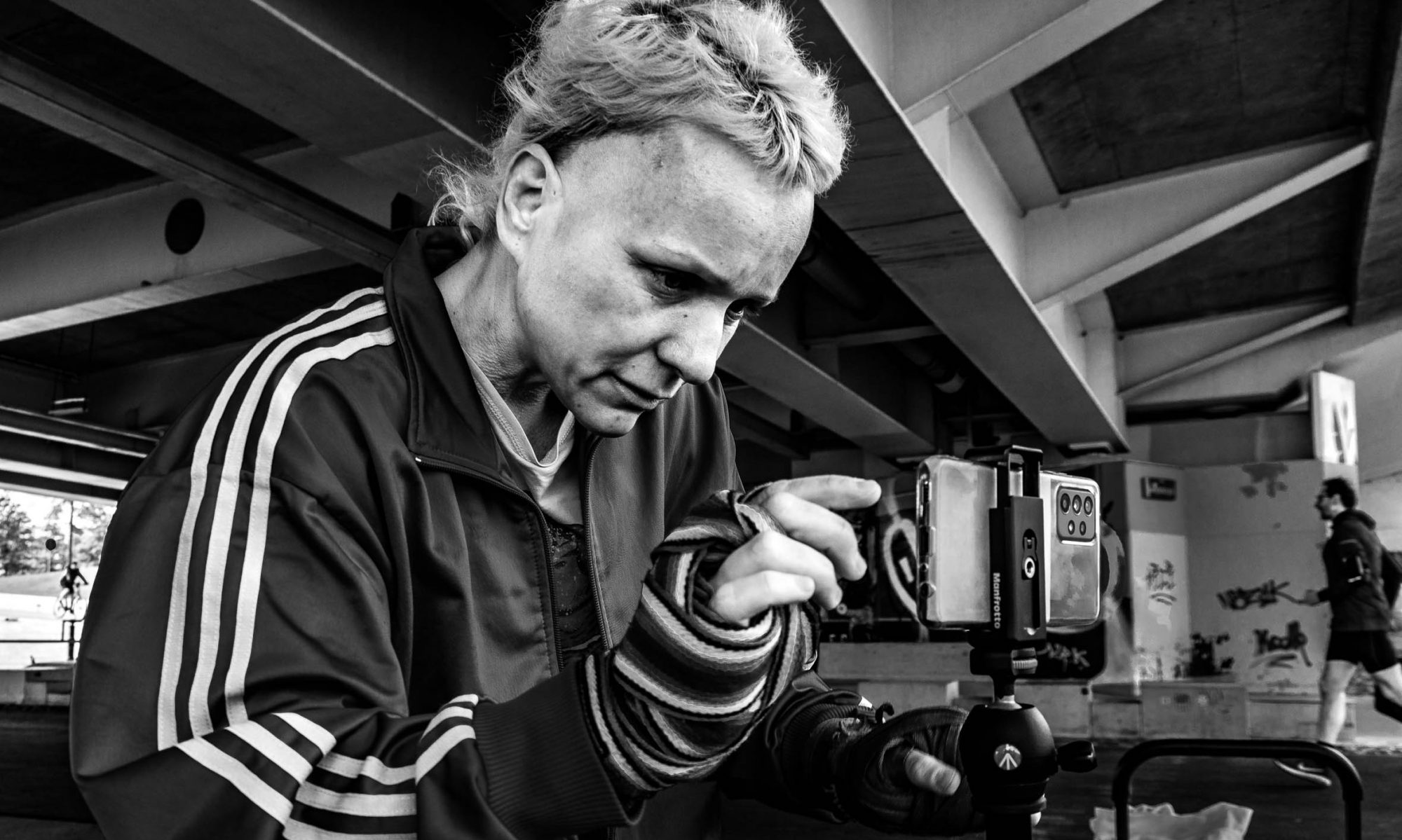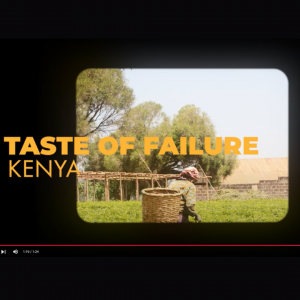I am a Romanian-born and established in Poland sociologist of failure, founder and leader of Failure Lab at University of Warsaw. This is a collaborative and global research network that explores failure regimes in a creolized world, with the tools of policy studies, cinema of “lovely losers”, cinema of abeyance, critical urban theory, and theatre of the absurd.
My current research focuses on the irrationality of failure, “sensing,” “beef,” abeyance, eligibility, and mania in policymaking. At the same time seeking to advance the first global research on “taste of failure” and “failing our children” in social sciences.
I conducted seminars and informal convenings on failure in France, Germany, the UK, the US, Indonesia, and Kenya. Having also engaged in the review of failure manuscripts with Cambridge University Press, Illinois Press, and other prestigious peer-reviewed journals.
.
Taste of failure
Taste of Failure: Moving Beyond Cognition and Emotions in the Exploration of Policymaking in Europe and Africa” (2024/5) is funded in the competition for research projects at the Centre of Excellence in Social Sciences, University of Warsaw.
Taste of Failure materializes the efforts and actions to develop critical failure studies that I undertake at University of Warsaw in the framework of Failure Lab UW in cross-fertilization with similar initiatives at global level. After a few years of theory developing, and working in the area of failure inequalities and policy privilege, I have recently embarked with my colleagues on linking the major theme of failure with the issue of taste. This project discusses how taste is a valuable tool to decipher the palatability of policymaking models in our society, especially in contexts marked by political domination, epistemic injustice, and sensorial hierarchies. It is based on the assumption that taste allows to get a glimpse of social expectations, mindsets and communication practices in relation to evaluation and legitimacy of policy failures in our society. We argue for moving beyond cognition and emotional dynamics, and to look for alternative transmitters of judgement regarding policymaking and governance. Our work informs about recent discussions on decoloniality, breaches in access to social justice and coping with invisible inequalities regarding policymaking. Highlighting the points of synergy within approaches to policy failure in global perspective.
Click here.
.
Failure advocacy
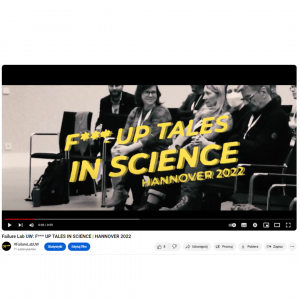 In terms of failure activism, I am engaged in a global think tank aimed at building robust failure research with amazing scholars and practitioners such as anthropologist Gertrude J. Fraser (University of Virginia), neurobiologist Stuart Firestein (Columbia University in the City of New York), author and human-centered strategist Claire Holman Thompson, and mental wellbeing expert Nadine Wilchess (LCSW, Mind the Gap). Together we are active in organizing failure convenings and efforts to push critical and global failure agenda forward. For instance, we participated together in the failure symposium in Hannover 2022, where the first F*** Up Tales in Science took place. This was a Volkswagen Foundation initiative, where Failure Lab UW members acted as co-organizers together with the main lead, ignorance sociologist, Matthias Gross (University of Jena)).
In terms of failure activism, I am engaged in a global think tank aimed at building robust failure research with amazing scholars and practitioners such as anthropologist Gertrude J. Fraser (University of Virginia), neurobiologist Stuart Firestein (Columbia University in the City of New York), author and human-centered strategist Claire Holman Thompson, and mental wellbeing expert Nadine Wilchess (LCSW, Mind the Gap). Together we are active in organizing failure convenings and efforts to push critical and global failure agenda forward. For instance, we participated together in the failure symposium in Hannover 2022, where the first F*** Up Tales in Science took place. This was a Volkswagen Foundation initiative, where Failure Lab UW members acted as co-organizers together with the main lead, ignorance sociologist, Matthias Gross (University of Jena)). 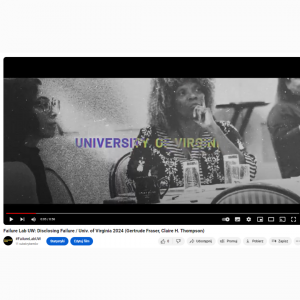 Learn from the best — powerful failure advocacy at University of Virginia. I had the immense pleasure to participate as a member of the conference organizing committee in an international research project funded by National Science Foundation (NSF), with Gertrude J. Fraser (University of Virginia) project coordinator, and Claire Holman Thompson as manager. The NSF grant – “Equity and Inclusion in Research Failure Disclosure” (2023-24) – organized a conference at University of Virginia, June 11-13, 2024, which invited dozens of the nation’s top women in science, technology, engineering and math do articulate the topic of “failure disclosure in STEM”.
Learn from the best — powerful failure advocacy at University of Virginia. I had the immense pleasure to participate as a member of the conference organizing committee in an international research project funded by National Science Foundation (NSF), with Gertrude J. Fraser (University of Virginia) project coordinator, and Claire Holman Thompson as manager. The NSF grant – “Equity and Inclusion in Research Failure Disclosure” (2023-24) – organized a conference at University of Virginia, June 11-13, 2024, which invited dozens of the nation’s top women in science, technology, engineering and math do articulate the topic of “failure disclosure in STEM”. 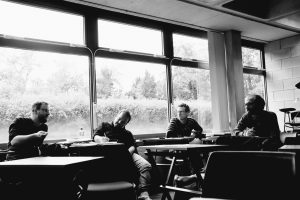 Another avenue of failure activism, which also brings in future and possibilities research, is the yearly mini-conferences at SASE (Society for the Advancement of Socio-Economics). Together with Ann Mische (University of Notre Dame) and Gary Herrigel (University of Chicago), we are trying to build a public for the research of alternatives, possibilities, and future projections among the economic sociology people. Now moving more concretely in the direction of dilemmas and failure in decision-making and policymaking.
Another avenue of failure activism, which also brings in future and possibilities research, is the yearly mini-conferences at SASE (Society for the Advancement of Socio-Economics). Together with Ann Mische (University of Notre Dame) and Gary Herrigel (University of Chicago), we are trying to build a public for the research of alternatives, possibilities, and future projections among the economic sociology people. Now moving more concretely in the direction of dilemmas and failure in decision-making and policymaking. 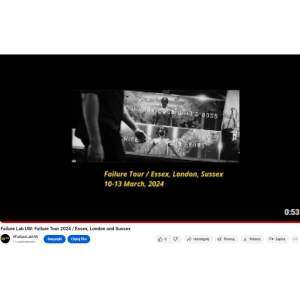 Beyond these more traditional channels, we have also been experiencing in our lab with so-called “failure tours.” In March 2024, we planned a series of convenings and transfers of knowledge between research groups on the global manifestation and the impact of policy failures. We met up with failure and ignorance folks in Essex, London and Sussex. This led to amazing feedback and new creative combos.
Beyond these more traditional channels, we have also been experiencing in our lab with so-called “failure tours.” In March 2024, we planned a series of convenings and transfers of knowledge between research groups on the global manifestation and the impact of policy failures. We met up with failure and ignorance folks in Essex, London and Sussex. This led to amazing feedback and new creative combos.
.
Global failure research
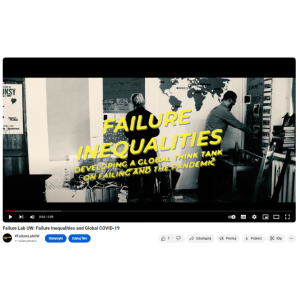 Our projects linking critical failure studies with sociology of policymaking have received in the last years funding from Excellence Initiative – Research University (2020-2026), National Science Centre Poland, and Volkswagen Foundation. Being engaged in charting failure inequalities, for instance, we attracted university funding for a collaborative and global failure research that was quite experimental. With Gertrude J. Fraser acting as a visiting fellow, and other very intuitive and skilled failure liaisons and local researchers, we managed to initiate preliminary yet coordinated exploration in eight sites of research – Poland, the USA, Romania, Italy, Chile, Morocco, India and Nigeria (2022-23). Such distribution, we found, satisfied our initial self-imposed condition that although incipient, the resultant map of failure inequalities and ignorance should nevertheless have a global resonance, and capture the contradictions and vulnerabilities of the global politics of health during the pandemic.
Our projects linking critical failure studies with sociology of policymaking have received in the last years funding from Excellence Initiative – Research University (2020-2026), National Science Centre Poland, and Volkswagen Foundation. Being engaged in charting failure inequalities, for instance, we attracted university funding for a collaborative and global failure research that was quite experimental. With Gertrude J. Fraser acting as a visiting fellow, and other very intuitive and skilled failure liaisons and local researchers, we managed to initiate preliminary yet coordinated exploration in eight sites of research – Poland, the USA, Romania, Italy, Chile, Morocco, India and Nigeria (2022-23). Such distribution, we found, satisfied our initial self-imposed condition that although incipient, the resultant map of failure inequalities and ignorance should nevertheless have a global resonance, and capture the contradictions and vulnerabilities of the global politics of health during the pandemic. 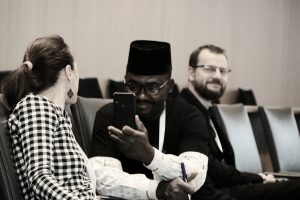 The pilot project on failure inequalities (2022-23) also managed to consolidate our close relationship with Nigerian sociologist Bashir Bello (Federal University, Gusau) within our failure research group – beyond Central and Eastern Europe and the US certainly. Our consistent collaborative work on the Nigerian case study, in the framework of our failure research group, turned out to be highly illustrative of the dynamic of the contemporary epistemology of unknowability in a crisis, the broader context of health colonialism, and the manner in which ignorance meets bioethics.
The pilot project on failure inequalities (2022-23) also managed to consolidate our close relationship with Nigerian sociologist Bashir Bello (Federal University, Gusau) within our failure research group – beyond Central and Eastern Europe and the US certainly. Our consistent collaborative work on the Nigerian case study, in the framework of our failure research group, turned out to be highly illustrative of the dynamic of the contemporary epistemology of unknowability in a crisis, the broader context of health colonialism, and the manner in which ignorance meets bioethics.
.
Failure literacy
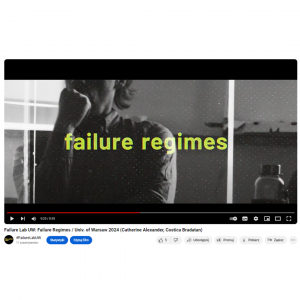 Organizing failure events and making very short movies about failure conceptual work in progress, is how I understand to contribute to failure literacy, and awareness of interaction between failure and other processes, such as ignorance. Our most recent failure event in Warsaw was a workshop on “Failure Regimes”, May 6-7, 2024, IPSiR UW. Inspiring guest speeches by Catherine Alexander (Durham University) and Costică Brădățan (Texas Tech University) were followed by powerful and critical feedback from our failure advocates and friends. In 2024, under the leadership of Linsey McGoey (University of Essex), we co-organized a seminar on “Revolutionary Epistemology: New Directions in Ignorance and Failure Studies.” Cross-fertilization of ignorance studies and failure studies amid proliferating projections of how the future of our societies will look like, and how these will be contested. The seminar brought a new theoretical combination, and it advanced the awareness of the need to test failure-ignorance concepts in analytical practice.
Organizing failure events and making very short movies about failure conceptual work in progress, is how I understand to contribute to failure literacy, and awareness of interaction between failure and other processes, such as ignorance. Our most recent failure event in Warsaw was a workshop on “Failure Regimes”, May 6-7, 2024, IPSiR UW. Inspiring guest speeches by Catherine Alexander (Durham University) and Costică Brădățan (Texas Tech University) were followed by powerful and critical feedback from our failure advocates and friends. In 2024, under the leadership of Linsey McGoey (University of Essex), we co-organized a seminar on “Revolutionary Epistemology: New Directions in Ignorance and Failure Studies.” Cross-fertilization of ignorance studies and failure studies amid proliferating projections of how the future of our societies will look like, and how these will be contested. The seminar brought a new theoretical combination, and it advanced the awareness of the need to test failure-ignorance concepts in analytical practice. 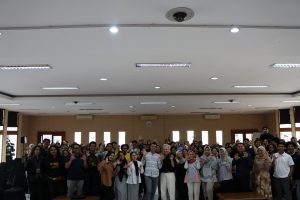 In terms of bridging failure and ignorance studies, one of the actions I am particularly proud of entails transglobal sociological initiatives that advance classes with students. As such, together with Muhamad Supraja (Gadjah Mada University, Yogyakarta) we work toward collaborative initiatives with the scope of popularizing failure, ignorance, and future university education.
In terms of bridging failure and ignorance studies, one of the actions I am particularly proud of entails transglobal sociological initiatives that advance classes with students. As such, together with Muhamad Supraja (Gadjah Mada University, Yogyakarta) we work toward collaborative initiatives with the scope of popularizing failure, ignorance, and future university education.
.
Failure books
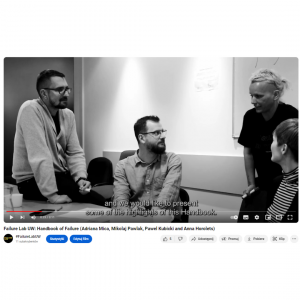 I employ sociological and ethnographic methods to understand how failure regimes are constituted and made seem normal in various creolized contexts. In Failure Lab UW, we put forward the first investigation of how policy responses are co-constructed in distinct socioeconomic contexts, body representations, and spatial configurations of failure. I am the author of Sociology as Analysis of the Unintended: From the Problem of Ignorance to the Discovery of the Possible (2018), the co-author of Ignorance and Change: Anticipatory Knowledge and the European Refugee Crisis (2020, Routledge, with Anna Horolets, Mikołaj Pawlak and Anna Horolets), and the co-author of Routledge International Handbook of Failure (2023, with Mikołaj Pawlak, Anna Horolets and Paweł Kubicki).
I employ sociological and ethnographic methods to understand how failure regimes are constituted and made seem normal in various creolized contexts. In Failure Lab UW, we put forward the first investigation of how policy responses are co-constructed in distinct socioeconomic contexts, body representations, and spatial configurations of failure. I am the author of Sociology as Analysis of the Unintended: From the Problem of Ignorance to the Discovery of the Possible (2018), the co-author of Ignorance and Change: Anticipatory Knowledge and the European Refugee Crisis (2020, Routledge, with Anna Horolets, Mikołaj Pawlak and Anna Horolets), and the co-author of Routledge International Handbook of Failure (2023, with Mikołaj Pawlak, Anna Horolets and Paweł Kubicki).
.
Social & space activism
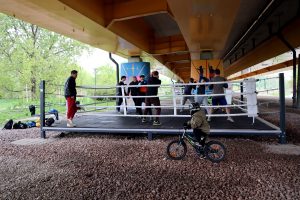 Beyond science, yet still connected, I have been involved since 2020 in supporting boxing & public sphere. I advanced a competitive initiative in successive editions of the participatory budget at the level of the capital city, as well as organized the first chessboxing meetings in Warsaw. Since 2023, I also serve as curator of photo exhibitions at my home institute — Institute of Social Prevention and Resocialisation, at University of Warsaw.
Beyond science, yet still connected, I have been involved since 2020 in supporting boxing & public sphere. I advanced a competitive initiative in successive editions of the participatory budget at the level of the capital city, as well as organized the first chessboxing meetings in Warsaw. Since 2023, I also serve as curator of photo exhibitions at my home institute — Institute of Social Prevention and Resocialisation, at University of Warsaw.
